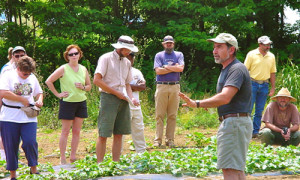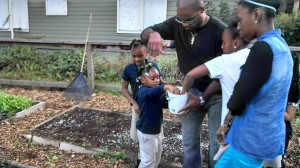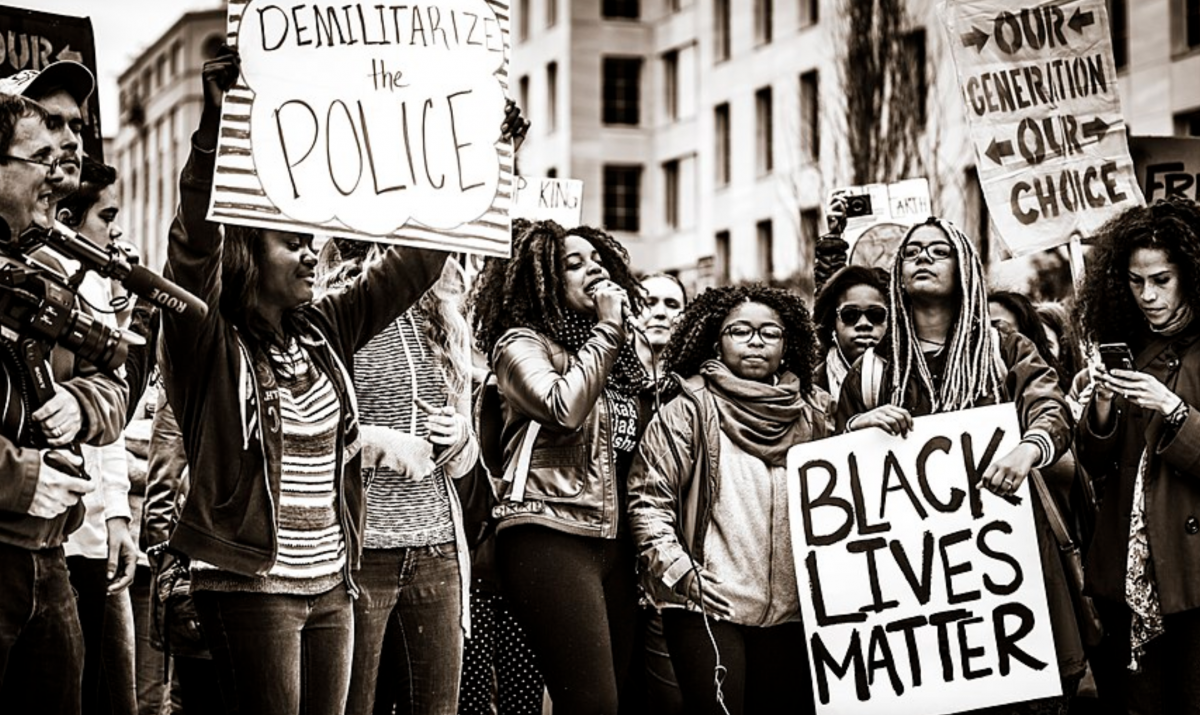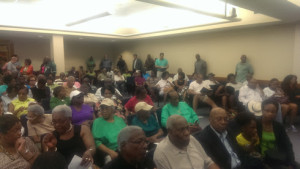Anthony Flaccavento & Kwabena Nkromo on Food Justice
On January 8, 2014, our featured activists, Anthony and Kwabena, conversed about their approaches toward food justice, the role of culture, and challenges they face in a “Talk Back” chat session. Read what they had to say.


Anthony Flaccavento (Activist)
Regarding culture, a couple of thoughts: First, it is essential to building local wealth and economic/social justice, because it is what distinguishes particular people and places from the otherwise rampaging global economy, with all it collateral damage, dependency, etc. Building on the attributes and unique features of local cultures helps galvanize people in the short term.
Sandra Barnhill (Moderator)
Thanks Anthony for that response. Kwabena, do you want to build on that?
Anthony Flaccavento (Activist)
… continuing that thought: focusing on (or simply understanding and embracing) local culture works especially well around food, because of the distinctiveness of local varieties, recipes, famous local cooks, etc. Beyond galvanizing folks to action, it does at least two other things: It keeps people coming back because it’s pleasant, and it draws in the “non-activist” types as well. What’s more, it more or less forces some level of constructive confrontation with the larger, homogenizing culture and economy.
Kwabena Nkromo (Activist)
For the justice part of the movement, culture is the refuge of those under attack from current oppressive impacts of the current food system or recovering from past trauma.
Guest – Nicoleeed
is it easier the grow and sell your own products now that the country appears to be on a health kick and how long will this last. Is it a fad?
Kwabena Nkromo (Activist)
Culture has proven itself to be resilient and while it too is vulnerable to being co-opted by others (i.e. hip hop culture’s commercialization), it often is immune to adaptive to conventional methods of domination. Therefore, connecting food justice to culture is an intelligent way to inoculate our work from being undermined.
Kwabena Nkromo (Activist)
@Nicoleeed: Well, that depends on us!
Kwabena Nkromo (Activist)
The clamor at the moment does have a fad quality to it, but there is a long standing movement of committed people underneath it all that are poised to help make this a enduring shift in our society.
Anthony Flaccavento (Activist)
Generally, it is certainly easier to sell local, healthy (indigenous, unique)foods now than it was 10 years ago, though there are also dangers as the local and sustainable food scene is “mainstreamed”. Among them: consumers begin to have the same expectations of “cheap, abundant and convenient” that they’ve become accustomed to, and this can put a real squeeze on farmers. Also, as WalMart and other giants enter the field, they not only drive prices down, but tend to displace (or preclude the emergence of )local grocers and other more locally rooted institutions.
Guest – Felecia
is it financially beneficial operating independently or do you have to get your product in the Walmarts in order for it to be worth it. Do you have to choose between being about the people and starving or selling out to be successful?
Guest- Presise
good questions ladies
Anthony Flaccavento (Activist)
No, I’d say that there is still plenty of room for local food hubs, distributors, grocers and bodegas, along with farmers markets and various on-line selling platforms. The key over these next several years will be figuring out how to make all this local food commerce relatively competitive with the mainstream, without compromising social justice, fair wage, sustainable production and food access values and goal. This is a HUGE challenge, but folks are doing it in both urban and rural places.
Kwabena Nkromo (Activist)
@Felecia: I believe the answer to the dilemma you are describing lies in the creation of food system infrastructure that serves the local food and urban agriculture movements that can provide an alternative to using the industrial food systems distribution and marketing channels.
Guest – Felecia
@Kwabena Nkromo: thanks for your answer
Anthony Flaccavento (Activist)
Kwabena is right on about the infrastructure, and many communities – again, both urban and rural – have or are developing a range of aggregation, processing and distribution infrastructure. We did that in Appalachia more than 12 years ago, and it’s made a huge difference. BUT, it is very hard to make it work in the marketplace without some subsidization (at least for the first several years)
Guest – Felecia
Wouldn’t your technique and ideas be better serve in developing countries verses trying to fight the corporate giants in the U.S.?
Anthony Flaccavento (Activist)
I hope they’d offer some solutions for developing countries, but I just don’t know enough about their context to say. I will say that we also need this desperately in the US, that it has begun to “scale up” in many places, and… that wherever we go, we are “fighting the corporate giants” in this day of incredible concentration of wealth and political power.
Kwabena Nkromo (Activist)
@Felecia: Changes in the way we produce, eat, and do business with food are needed in most parts of the world including the States. More importantly, if we can improve things here it will have a positive impact of agriculture in other countries due to the influence of the U.S. economy and political power.
Anthony Flaccavento (Activist)
Keep in mind, too, that a good bit of US food and ag trade policy is driven by the need to find large export markets for the big commodity agribusinesses (corn, wheat, sugar, etc). To the degree that we can demonstrate market opportunities here at home, feeding our own neighbors with healthier food, we can take some of the wind out of those policies that tend to ruin local agriculture in developing countries.
Kwabena Nkromo (Activist)
Here in Atlanta and in Fresno CA, we are working to implement a whole systems approach to regional agriculture called “The Food Commons” (www.thefoodcommons.org). I believe this is one of the most cutting edge strategies to get us back to a more balanced “agriculture of the middle”, including the thriving urban agriculture industry segment that I mostly interests me.
Kwabena Nkromo (Activist)
@anthony flaccavento: I agree with you completely on this. Our domestic consumer choices directly affect U.S. foreign policy and the international economy.
Sandra Barnhill (Moderator)
Anthony and Kwabena, any concluding words?
Anthony Flaccavento (Activist)
hopefully we can try again with a simpler and smoother system of interacting, as typing responses takes a long time and really limits the conversation, at least for me. Other than that, good, thoughtful questions from the participants and great feedback from Kwabena.
Kwabena Nkromo (Activist)
Yes, I think widespread “horticultural literacy” is a key aspect of the food justice movement. Every citizen ought to be equipped with the basic knowledge of how to feed themselves from growing food if they chose to. Even if we all don’t become gardeners or farmers, possessing horticultural literacy would certainly empower us to make better choices in our democracy related to food and as food consumers.
Anthony Flaccavento (Activist)
yes…
Sandra Barnhill (Moderator)
Thanks. I totally agree. There is definitely an easier way! I appreciate you and Kwabena for hanging in here!
Sandra Barnhill (Moderator)
Many thanks to all who joined us for this Talk Back session. Please tell your friends about the website and stay tuned for the next session between Anthony and Kwabena!! This concludes the January 8th Talk Back Session between Anthony and Kwabena who both day in and day out FIGHT for FOOD SECURITY!!
Kwabena Nkromo (Activist)
@anthony flaccavento: Great working with you Anthony!
[button size=”small” type=”info” value=”Return to Activists On. . .” href=”http://toughmindtenderheart.com/talk-back-live-chat/”]



